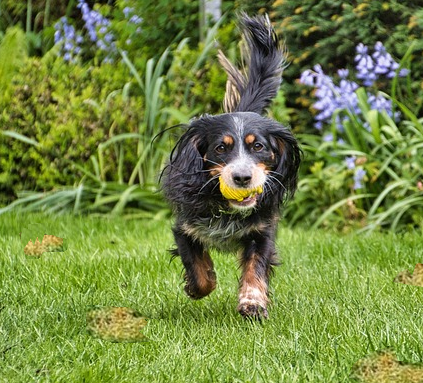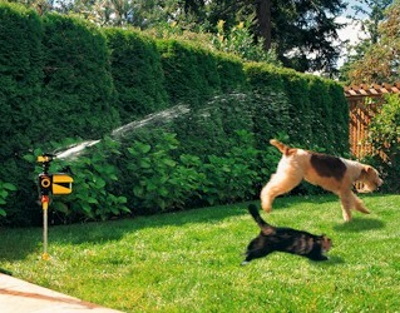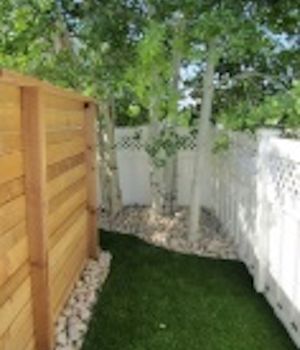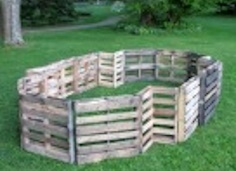Lawn Care for Dog Pee: How to Prevent and Repair Urine Damage Safely
Dog urine spots are one of the most frustrating lawn problems for dog owners. One day your grass looks healthy — the next, you’re dealing with yellow or brown patches that keep coming back.

The good news? With the right lawn care for dog pee, you can both repair existing damage and prevent future spots, without risking your dog’s health.
This guide focuses on safe, proven strategies – not harsh chemicals or diet fads – so you can protect both your lawn and your dog.
Why Dog Pee Damages Grass
Dog urine is high in nitrogen.
In small amounts, nitrogen feeds grass
–
but when a dog urinates repeatedly in the same area, it overloads the soil and “burns” the grass roots.
You may notice:
- Yellow or brown centers with dark green edges
- Damage appearing worse in hot or dry weather
- More spotting in favorite potty areas
⚠️ Myth alert: This is not usually caused by urine pH or a “bad diet.” Healthy dogs produce normal urine, and changing food rarely solves lawn damage.
How to Repair Dog Urine Spots Fast (Step by Step)
If you already have burned patches, start here. This simple process matches what lawn pros and extension services recommend.
Step-by-Step Lawn Repair for Dog Pee
-
Rinse the area thoroughly
As soon as you notice damage, soak the spot deeply with water to flush excess nitrogen from the soil. -
Rake out dead grass
Remove brown or matted grass so new growth can take hold. -
Loosen the soil
Lightly cultivate the top 1–2 inches to improve drainage and root penetration. -
Apply a thin layer of soil or compost
This helps dilute remaining salts and creates a healthy seed bed. -
Reseed or patch with sod
Use a grass type suited to your climate and traffic level. -
Water daily (lightly) until established
Keep soil moist but not soggy for 10–14 days. -
Limit dog access during recovery
Full recovery usually takes 2–4 weeks, depending on weather and grass type.
✅
Pet-safety note
: Avoid lawn repair products that are not explicitly labeled safe for pets until fully established.
If your dog has also had accidents inside the house, the steps are a bit different. You may find this guide on how to remove dog urine indoors helpful.
One thing I learned the hard way is that rushing the repair rarely works. Giving the grass time to recover – and keeping curious paws off it – made all the difference.
The Best Lawn Care for Dog Pee (If You Do Only 3 Things)
After much trial and error, these are the approaches that made the biggest difference. If you want the biggest results with the least effort, focus on these A-list strategies:
✔️ Best Choices for Most Dog Owners
-
Designate a potty area
Training your dog to use one zone limits damage to a manageable spot. - Water immediately after peeing
A quick rinse dramatically reduces nitrogen burn. - Use more urine-tolerant grass in high-traffic areas
Fescue and perennial rye tend to recover better than delicate varieties.
These three steps alone solve the majority of dog pee lawn problems.
Comparing Your Prevention Options (Pros & Cons)
Here’s how the most common solutions stack up:
Prevention Methods Compared
Immediate watering
Effectiveness: ⭐⭐⭐⭐
- Cost: Low
- Effort: Low
- Pet safety: ✅ Very safe
I personally like the water treatment because it's safe and has worked for me, but there is a slight drawback. You have to act quickly.
Designated potty area
- Effectiveness: ⭐⭐⭐⭐
- Cost: Low–Medium
- Effort: Medium (training)
- Pet safety: ✅ Very safe
Grass selection / overseeding with EZ Seed Dog Spot Repair available on Amazon
- Effectiveness: ⭐⭐⭐
- Cost: Medium
- Effort: Medium
- Pet safety: ✅ Safe
Supplements / diet changes
- Effectiveness: ⭐
- Cost: Medium–High
- Effort: High
- Pet safety: ⚠️ Vet approval required
One solution that worked surprisingly well for us – especially for keeping dogs out of freshly repaired spots — was a motion-activated sprinkler.
We didn’t use deterrents everywhere – only where grass was actively recovering. Used selectively, motion-activated sprinklers helped protect new growth without turning the yard into a no-go zone for the dogs.
It
wasn’t perfect, and it took a little trial and error, but for certain areas it
saved us a lot of frustration. One caution: if you try this idea, introduce sprinklers gradually so dogs don’t become fearful of the yard.
 Motion-activated sprinkler in use
Motion-activated sprinkler in useWhat Works Best in Your Situation?
Small Yard, One Dog
- Designated potty zone
- Immediate watering
- Spot repair as needed
 Creating a dedicated potty zone helped limit damage and made cleanup much easier.
Creating a dedicated potty zone helped limit damage and made cleanup much easier.Multiple Dogs, Heavy Traffic
- Reinforced potty area (mulch, gravel, or tough grass)
- Frequent flushing with water
- Regular reseeding
 Potty Area For Larger yards and Multiple Dogs
Potty Area For Larger yards and Multiple DogsFemale Dog Causing Frequent Spots
- Rotate potty areas
- Rinse consistently
- Avoid blaming diet – frequency and squatting style matter more
Dry or Hot Climate
- Water spots promptly
- Choose drought-tolerant, resilient grass types
-
Repair early before heat worsens damage
In households we’ve lived in or heard from over the years… the back yard is a place that dogs and pet parents play together and enjoy the outdoors. Keeping the lawn healthy, safe and green is tops for everyone!
Lawn Care Myths You Can Safely Ignore
❌ “Dog urine is too acidic.”
Healthy dog urine pH is normal. Nitrogen concentration is the real issue.
❌ “Changing food will fix lawn damage.”
Diet changes rarely help and may harm your dog if done improperly.
❌ “Gypsum always works.”
Gypsum only helps specific soil conditions and is not a universal fix.
Over the years, I’ve seen dog food blamed for lawn damage, but in most cases the issue is volume and concentration – not diet.
⁉️ Lawn Care FAQs
Lawn care For Dog Pee FAQs and answers:Final Takeaway
The safest and most effective lawn care for dog pee focuses on:
- Dilution
- Containment
- Repair – not punishment or diet manipulation
Your dog doesn’t need to change
–
just your lawn strategy.
Over time, I stopped looking for a permanent “fix” and started focusing on management. That mindset shift alone reduced stress – for both us and the dogs.
Products to Consider For Dog Pee Solutions
- Zesty Paws Stay Green Bites for Dogs, available on Amazon – supports healthy lawn and hydration (vet approval recommended)
- EZ Seed Dog Spot Repair – pet-safe repair seed mix for urine damage
Before You Go...
If you like the content of this page, as well as others on my site, please give it some love by clicking on the heart in the lower right hand corner. This helps me to keep providing enjoyable and useful content.
Thank you.
Related Resources
How to Remove Dog Urine Indoors – What works on carpets, floors, and upholstery without harsh chemicals
- Home ›
- Dog Lawn Care
